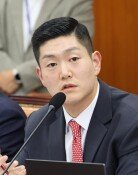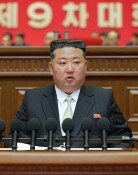Johns Hopkins Plans Korea Institute
Johns Hopkins Plans Korea Institute
Posted August. 22, 2006 03:01,
A U.S.-Korea Institute will be established in Johns Hopkins University, Washington D.C. The special field of this institute is the study of the relationship between the U.S. and Korea.
A source from Embassy of Republic of Korea in the U.S. said yesterday, The U.S.-Korea Institute will be established in School of Advanced International Studies (SAIS) of Johns Hopkins University, and Don Oberdorfer, professor of SAIS, will serve as president of this institute.
It is the first time that two countries have established a research institute for the study of U.S.-Korea relations in Washington, a center of Korea-U.S. diplomatic activity. In fact, the Korea Economic Institute (KEI) that was founded in Washington in 1982 has been doing this work with the support of Ministry of Foreign Affairs and Trade in Korea. Their work has largely relied on scientific research and seminars.
Professor Don Oberdorfer is a scholar who made his name by working as a professional journalist in the issues of East Asian region and the Korea peninsula for more than 40 years.
According to a source from Embassy of Republic of Korea, SAIA employs lecturers who majored Korean Studies in the U.S. under annual contract. After two years of evaluating their teaching skills and research ability, the school decides if they hire them as a professor. To finance professors salaries, the school and the Korea Foundation respectively contribute two or three million dollars.
In addition to these lecturers, David Straub, who served as a head of the Korea department and Japan department in the U.S. Department of State and retired last spring, will deliver lectures starting this fall.
The opening ceremony is planned in mid September, timed with President Rohs visit to the United States, and former Secretary of State Madeleine Albright is scheduled to deliver a congratulatory speech.
At an interview with the reporters of Dong-A Ilbo, Professor Don Oberdorfer said, David Straubs lectures will encompass a wide array of theories to business. The students who finish this course should pay visits to Korea to have interviews with policymakers there. Their final reports will be compiled and published as books later.
srkim@donga.com







